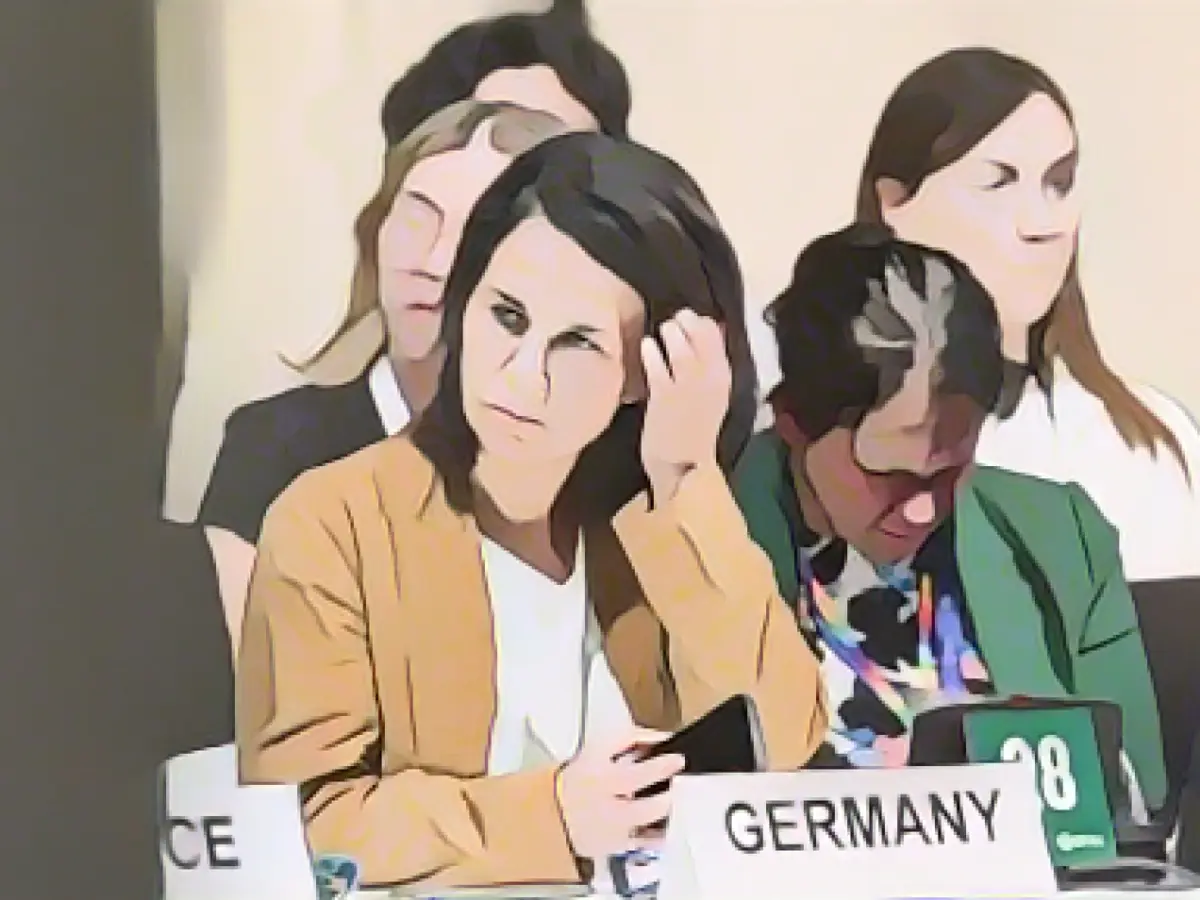World Climate Conference: COP28 and the Fossil Fuel Controversy - Germany Seeks a More Ambitious Accord
With the World Climate Conference approaching its conclusion in Dubai, Germany and the EU find themselves leading a coalition of nations pressing for more ambitious revisions to the conference's final agreement. Criticizing the current draft as disappointing and inadequate, Germany's Foreign Minister Annalena Baerbock and EU chief negotiator Wopke Hoekstra have voiced their concerns.
The delicate two-week negotiations among almost 200 countries have already generated skepticism that the conference may extend beyond its original deadline, once again showcasing the conference's traditional tendencies to drag on. Nonetheless, Baerbock remains optimistic that the European delegation possesses ample time to secure a more ambitious outcome.
Various countries, such as Saudi Arabia, China, Iraq, India, and Russia, have recently voiced concerns about the proposed phase-out of fossil fuels. Their objections complicate the delicate balancing act required to reach a compromise agreement among the attending countries.
As Germany champions the cause of future generations, Baerbock emphasizes that children deserve a cleaner, more sustainable planet. Yet, this position faces opposition from nations endorsing the continued role of fossil fuels in their respective energy policies.
The stalemate over this key issue has led to exasperation among environmental organizations, who fear that the conference could ultimately fail to deliver the ambitious, forward-thinking energy transition initiatives demanded by more than 100 countries.
Martin Kaiser, the managing director of Greenpeace Germany, expressed his dismay that the draft appears to cater to the interests of the oil and gas industry rather than those directly impacted by climate change fallout. The draft agreement, Kaiser notes, falls far short of the ambition necessary to effectively phase out fossil fuels and limit the world's temperature rise to 1.5 degrees Celsius.
During the heads of delegation meeting, Hoekstra and German Climate Secretary Jennifer Morgan engaged with the High Ambition Coalition. This alliance of industrialized and vulnerable nations constitutes a powerful force advocating for an ambitious plan to combat the climate crisis.
Hoekstra underscored the importance of preserving the 1.5-degree target enshrined in the Paris Agreement in 2015, asserting that it represents the only feasible option for safeguarding the planet for future generations.
As the conference nears its conclusion, conference president Sultan al-Jaber has acknowledged the need for continued improvement, indicating that unresolved issues still demand attention. He emphasized the necessity of an ambitious, ambitious agreement that respects scientific insights while keeping the 1.5-degree objective within reach.
Several experts, including Jan Kowalzig of Oxfam, have voiced their concerns that the weak draft text may not even include core goals, such as tripling renewable energies and doubling energy efficiency, but merely suggest these as possible measures.
Viviane Raddatz, Climate Director of WWF Germany, also decried the draft's disappointing content, expressing concern that a failure at COP28 could undermine ongoing efforts to combat climate change. The momentum generated by the conference could bring humanity to the brink of a devastating climate crisis if key resolutions fall short.
Under pressure to craft an improved agreement, Germany and its allies are working to amplify the commitments to phase out fossil fuels and encourage a more ambitious transition to renewable and sustainable energy sources. This diplomatic push could decide the fate of the COP28 conference, potentially cementing a more ambitious, resolute, and aspirational vision for the world's energy future.
Additional Insights:
- The prominence of fossil fuel lobbyists at the conference, including more than 1,400 accredited by the host country, has raised questions about the conference's commitment to a carbon-free future.
- The UAE Presidency's draft proposal includes a focus on accelerating energy transition, addressing fossil fuel emissions, and increasing the adoption of renewable energy sources. Critics argue that it falls short on commitment and scope.
- Published reports indicate that the UAE Presidency plans to halve direct emissions from oil and gas production and energy purchases, but these goals have been met with skepticism due to concerns about Scope 3 emissions.
- Countries including Germany and the UK have pledged to transition away from fossil fuels in their own national plans, raising expectations for more robust commitments from the COP28 conference.
- Environmental organizations and experts caution that the draft does not use sufficient urgency or ambition to effectively address climate change, increasing the likelihood of failure to meet the Paris Agreement targets.




